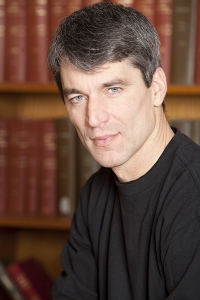
Professor Pardy is a 2011 PERC Julian Simon Fellow. He is currently writing a book called A Natural Law of Systems: Ecosystems, Markets, and the Meaning of Liberty.
Q: What is legal instrumentalism? How does it differ from the rule of law?
A: Legal instrumentalism is based upon the premise that the role of government is to solve specific problems by specific means. It is a “hands-on” way to govern. As the label suggests, legal instrumentalism says that law is important only as an instrument to achieve the “right” result. In other words, law is a means to an end, or a tool for the social good. The problem, of course, is that, like beauty, the right result lies in the eyes of beholder, and differs from person to person. Down that route lies the tyranny of the arbitrary rule of persons. The premise of the rule of law is that government decision-makers are not free to do as they think best because they are bound by generally applicable, abstract rules that bind governments as well as citizens. Brian Tamanaha of Washington University Law School has aptly pointed out that instrumentalism and the rule of law are the two core ideas of the American legal system, but in certain crucial respects they conflict. Although governments today widely claim to believe in the rule of law, their behavior is predominantly instrumentalist in nature.
Q: Thomas Aquinas proposed another category: natural law. What is natural law and what are some difficulties that arise in its application? Conversely, what occurs in the absence of natural law?
A: The premise of natural law is that there are objective moral truths that apply to all human beings upon which laws should be based. Natural law purports to contain inherent, substantive limits on what legislatures and judges can do, because it is a “higher” law, based upon universal and immutable moral principles, whose purpose is to reflect what is good for human beings. The problem is that the many volumes of moral reasoning produced by philosophers and legal theorists over the centuries illustrate the opposite truth: moral standards are personal, arbitrary, subjective, and cannot be proven to be otherwise. Since natural law claims to be based upon moral absolutes rather than public opinion, it is not sufficient to establish their validity by pointing to majority opinion or public consensus. The agreement of a majority of people about moral absolutes simply means that they agree, not that the moral absolutes that they believe in are, in fact, absolute. Twenty years hence public opinion may have shifted, but by definition moral absolutes never do. If the real criterion is majority opinion, then the principle of basing laws upon universal morality is a fiction. But in the absence of natural law, law is a vacuum, able to be filled by whomever is powerful enough to take the reins. What is needed is an objective, non-arbitrary set of principles on which law can be based.
Q: What do ecosystems and markets have in common?
A: Markets and ecosystems run themselves. These systems are not just collections of things, like widgets or frogs, but consist of elements interacting in a complex web of relationships and patterns that together amount to phenomena different from the sum of their parts. They operate according to their own immutable characteristics and rules, and share important features. They are organic and evolutionary, changing through time, rather than existing in a fixed or static state. They arise spontaneously, and their fundamental rules have not been created or invented by human beings, and cannot be changed by government design. All participants are equally subject to their forces; systems do not play favorites.
Q: In your paper, “The Hand is Invisible, Nature Knows Best, and Justice is Blind” [PDF], you write that, “Human action can affect the outcome of system processes, but it cannot change the nature of those processes.” Does this eliminate the need for laws that apply to markets and ecosystems?
A: The immutability of ecosystems and markets does not mean that there cannot or should not be laws that apply to them. Calling these systems “immutable” does not mean that they are impervious to external forces, but only that their internal principles are independent of state regulation, moral argument, or personal preference. Their protection is not a mandate to be performed “in the public interest.” It is not because someone has deemed them to be socially valuable that the law should provide for their operation. These systems exist. People live within them, because they cannot do otherwise, and depend on them for survival. They follow their own rules, because they can do nothing else. They cannot be manipulated or changed to behave differently, and efforts to do so are misguided. Instead, legal rules and principles need to account for the manner in which they operate.
Q: How does the nature of ecosystems conflict with the concept of legal instrumentalism?
A: Ecosystems are unplanned. They operate as complex-adaptive systems with their own inherent rules and dynamics. To manage an ecosystem is to manipulate it, making it something other than what it was and what it would have been. Managing ecosystems in order to protect or preserve them is a contradiction because the act of management creates the influence that changes the system. The pursuit of specific environmental and social objectives means that different preferences will be expressed in different situations. The attempt to dictate results means that elements within the system are not autonomous nor engaged in a truly competitive pursuit of self-interest, the information normally produced through system interactions is not accurate, the system’s self-governing mechanisms are thrown off, the system’s evolutionary destiny is altered, and the ability of the system to function as a system is compromised.
Q: How can ecosystems and markets provide insight into how law should work?
A: Legal decisions are supposed to emanate from a system of governance. This system should operate more like ecosystems and markets than like technicians attempting to fix problems one at a time. Isolated, instrumentalist legal commands are incompatible with the operation of a law as a system. Providing ad-hoc answers on a case-by-case basis is as much of an affront to legal principles as controlling butterflies is to the nature of an ecosystem. Every insect eaten by a bird has meaning for the state of plants and animals in an ecosystem; every sale of shoes has meaning for the state of commerce in a market; every court judgment and administrative edict has meaning for the state of the law within its jurisdiction. When law functions as a system, its decisions are systemic rather than reflect the inclinations of individual decision-makers. It has features that provide answers and outcomes in an objective, non-arbitrary manner, as in ecosystems and markets.
Q: What alternative do you propose for ecosystem management? How can the law of systems be implemented?
A: A natural law of systems is built on a different set of premises than ecosystem management. To manage something means to control it, and if necessary, to change it. It seeks to achieve the “public good,” which inevitably takes on a political meaning. A natural law of systems, on the other hand, seeks to solve problems by finding principles that define a system in which problems solve themselves. Under this approach, government establishes rules and principles that are clear, understandable, and general, and then stands back and lets the system run, rather than inserting itself into every specific problem that turns up. The mandate under a natural law of systems is to understand the systems within which we live, so that we can govern ourselves accordingly and allow those systems to take care of themselves.


